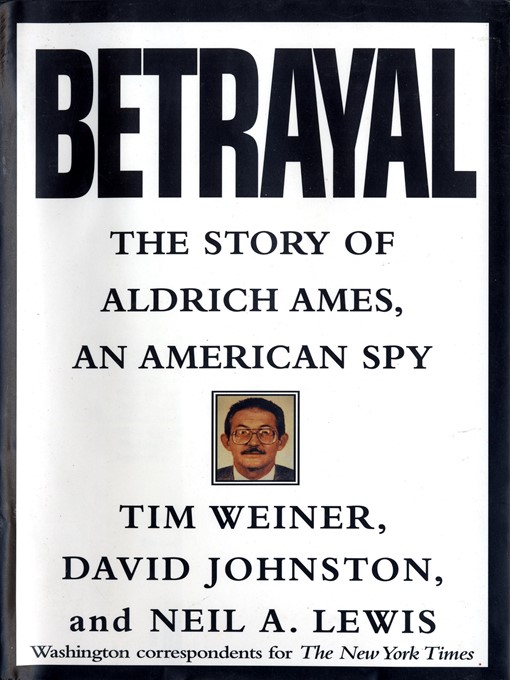
Betrayal
The Story of Aldrich Ames, an American Spy
کتاب های مرتبط
- اطلاعات
- نقد و بررسی
- دیدگاه کاربران
نقد و بررسی

Starred review from May 29, 1995
This New York Times reporting team's taut, riveting, remarkably vivid account of former CIA agent Aldrich Ames's treason, arrest and 1994 conviction as a mole for Moscow reads like a spy thriller. The Wisconsin-born son of a history professor-turned-CIA-agent, Ames, depicted here as a slovenly, procrastinating, inept, mediocre, alcoholic bureaucrat, rose to become counterintelligence chief of the CIA's Soviet division. In 1985, he revealed to the KGB the identities of 12 Soviet intelligence officers who were secretly working for the CIA. Despite the ensuing wave of KGB arrests and executions, the CIA would not acknowledge that someone within its ranks was a traitor, and the agency's slapdash mole-hunt made progress only after 1991, when the FBI was called in to crack the case. Through hours of jailhouse interviews with Ames, sentenced to life without parole, the authors establish greed as his overriding motive-he stashed away $2 million in payoffs from Moscow in secret bank accounts. This is an amazing tale of institutional hubris and bungling. Photos.

June 1, 1995
James Adams ["Sellout," BKL Ap 15 95] won the race for the first book-length account of the Ames case, but this author complements his predecessor. Both open with the traitor's arrest, yet they quote Ames' statements differently: "Think, think, think," he mumbled, according to Adams; "You must have the wrong man," quotes Weiner. In either case, Ames was obviously surprised at the crash of his fortunes, having burned agents, blown operations, and collected bundles of Russian cash with impunity for nearly 10 years. Weiner and his "New York Times" team do well narrating such cravenness, which originated in a web of resentments: Ames felt stalled in his career, smarter than the anti-Soviet zealots at Casey's CIA, and strapped for cash. When the case broke last year, the hue and cry played up an incompetent CIA that didn't note the warning signs of Ames' drunkenness and professional sluggishness--legitimate charges--but a well-rounded picture would include the KGB's deceptions that concealed its mole's identity. That roundedness Weiner's team delivers through this window on intelligence issues. ((Reviewed June 1 & 15, 1995))(Reprinted with permission of Booklist, copyright 1995, American Library Association.)

























دیدگاه کاربران